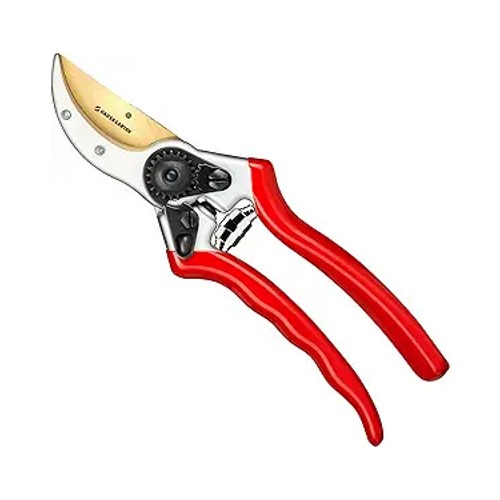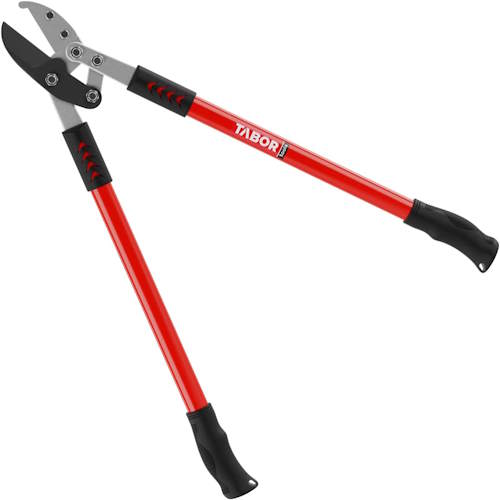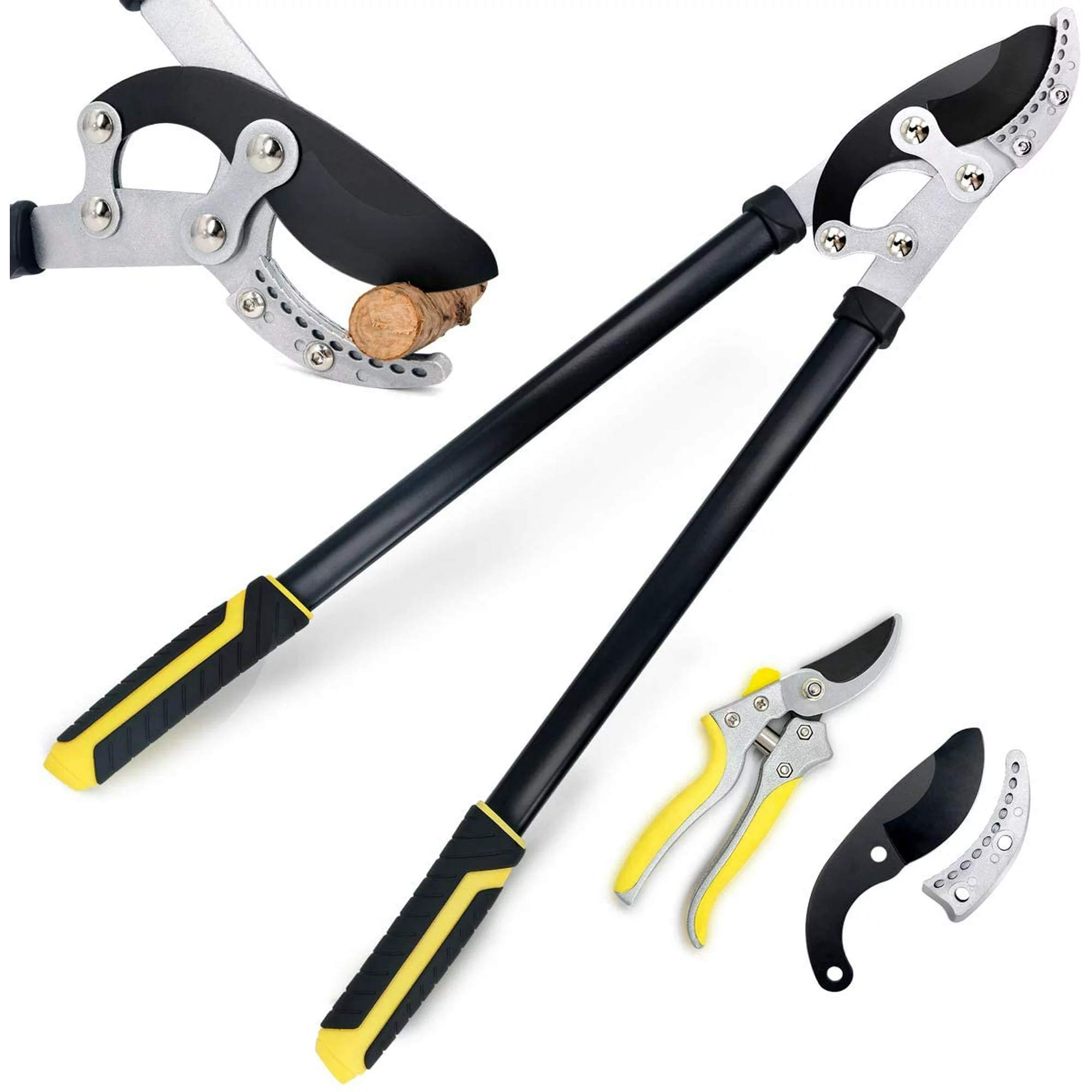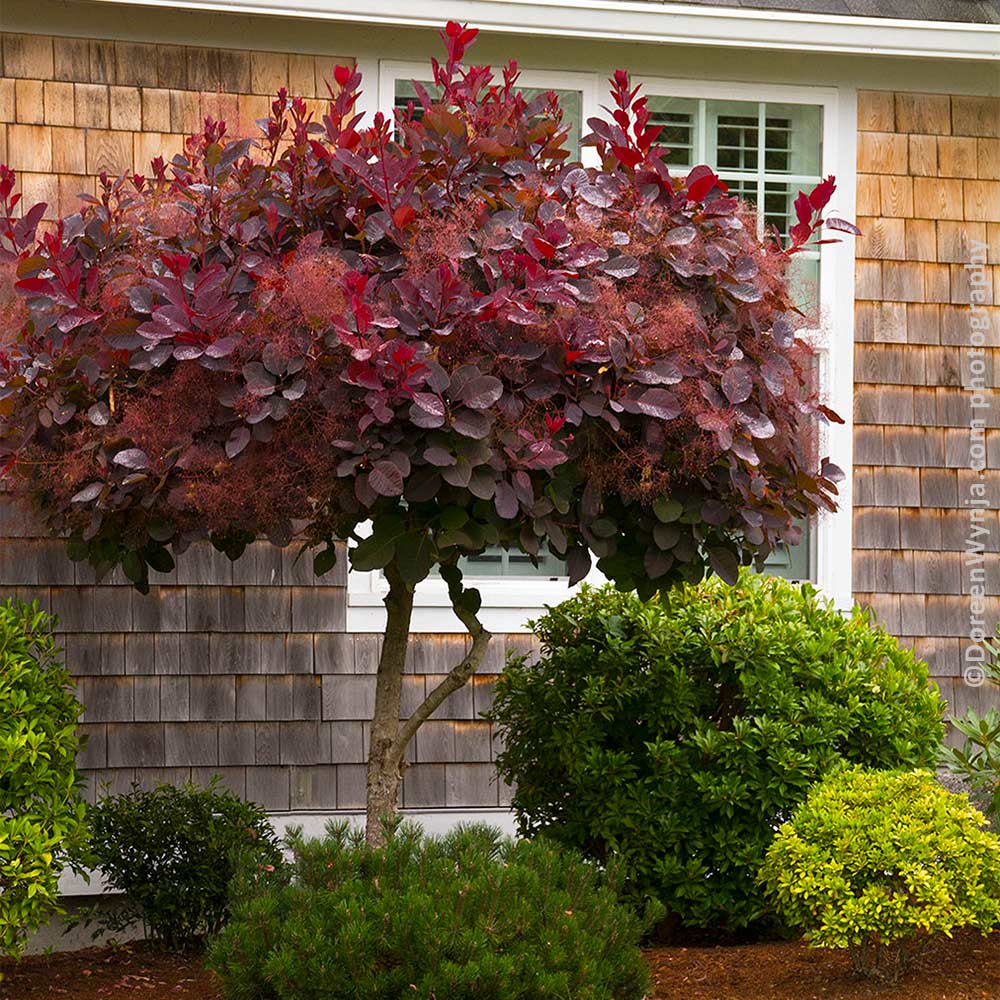When and how to prune a smoke bush – 3 methods to try
Whether grown as a shrub or a small tree, knowing when and how to prune will keep smoke bushes healthy and blooming

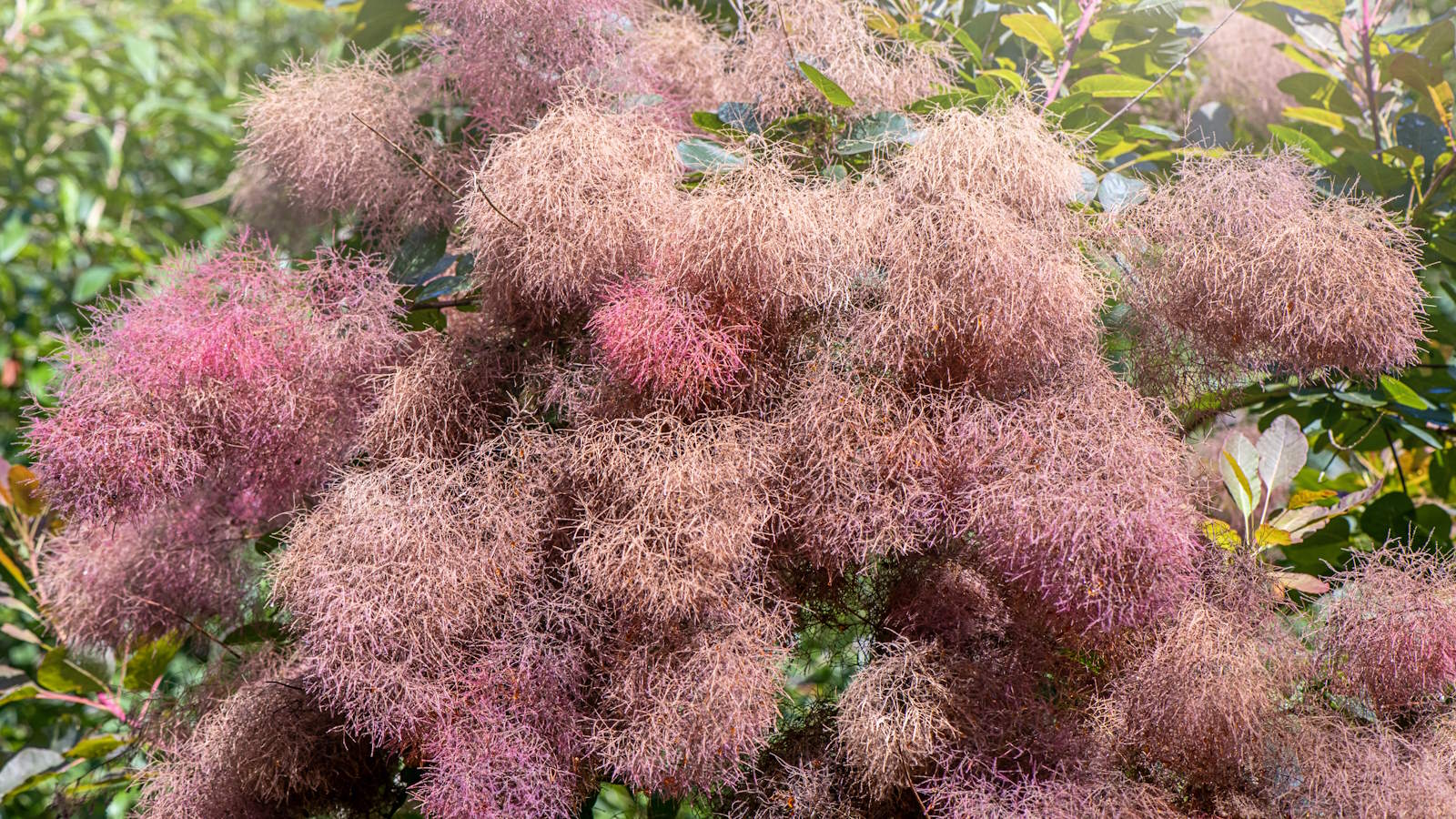
Design expertise in your inbox – from inspiring decorating ideas and beautiful celebrity homes to practical gardening advice and shopping round-ups.
You are now subscribed
Your newsletter sign-up was successful
Want to add more newsletters?

Twice a week
Homes&Gardens
The ultimate interior design resource from the world's leading experts - discover inspiring decorating ideas, color scheming know-how, garden inspiration and shopping expertise.

Once a week
In The Loop from Next In Design
Members of the Next in Design Circle will receive In the Loop, our weekly email filled with trade news, names to know and spotlight moments. Together we’re building a brighter design future.

Twice a week
Cucina
Whether you’re passionate about hosting exquisite dinners, experimenting with culinary trends, or perfecting your kitchen's design with timeless elegance and innovative functionality, this newsletter is here to inspire
The smoke bush, Cotinus coggygria, got its name thanks to the clouds of tiny flowers it produces that make the plant look engulfed in plumes of smoke. It is also popular due to the range of foliage colors it can come in, and its versatility as the smoke bush can be grown as a shrub or a small tree.
If you do have a smoke bush, it is very low maintenance and that includes when it comes to pruning. Though not a necessity, pruning a smoke bush can keep it in a compact form and produce a great display of its spring flowers.
Smoke bushes can be gently shaped and trimmed every year or so, but they can also tolerate heavy pruning of branches if it is an older smoke bush that needs rejuvenating. The right pruning techniques can also successfully train a shrub to grow into a dramatic small tree for your backyard ideas.
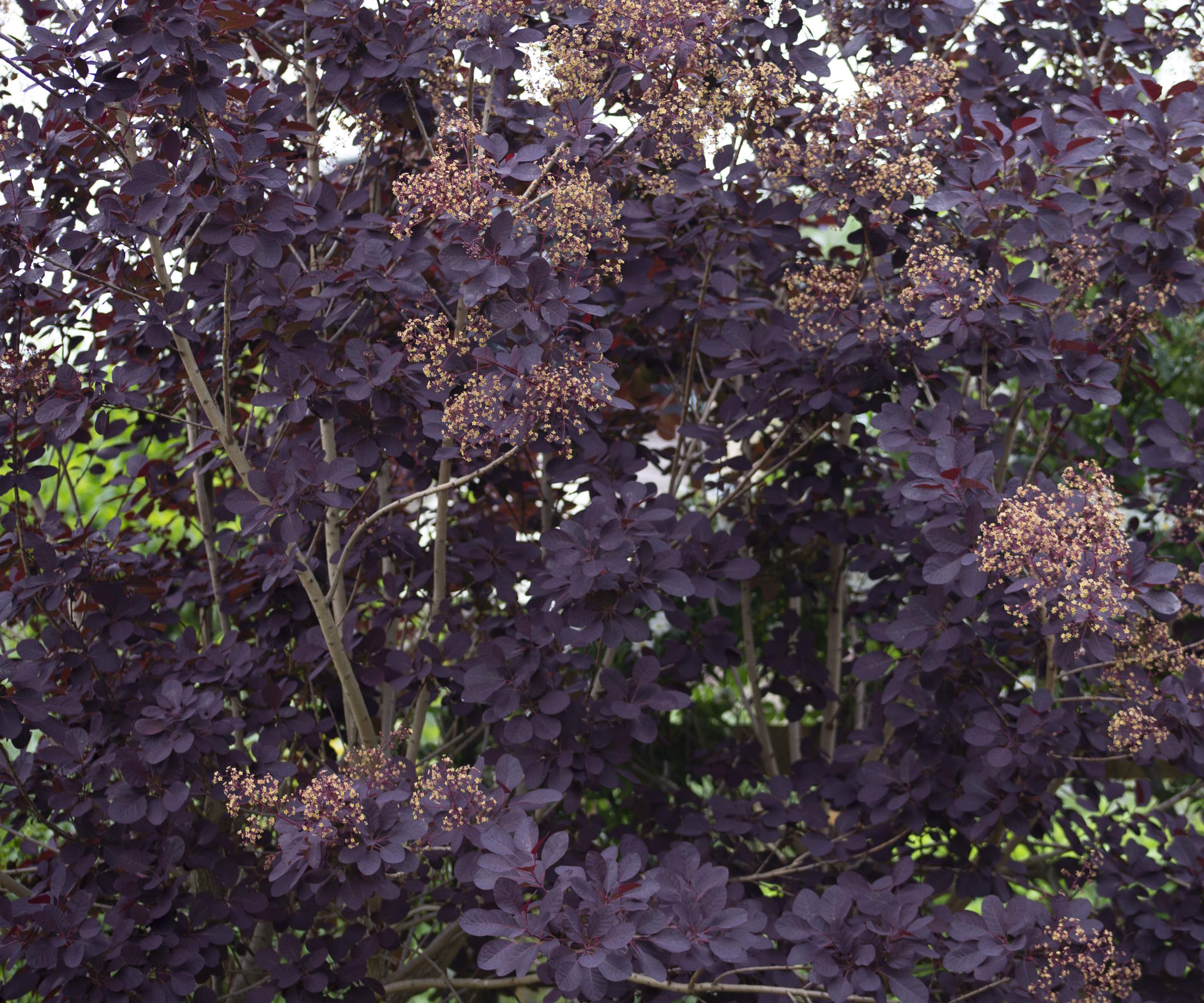
Certain varieties of smoke bush have stunning dark foliage
Why you should prune a smoke bush
Pruning a smoke bush can be a key maintenance task to keep the shrub healthy and growing in a desirable form. To help you make decisions about pruning your smoke bush, we hear from some experts about the right timing and techniques to use.
When to prune a smoke bush
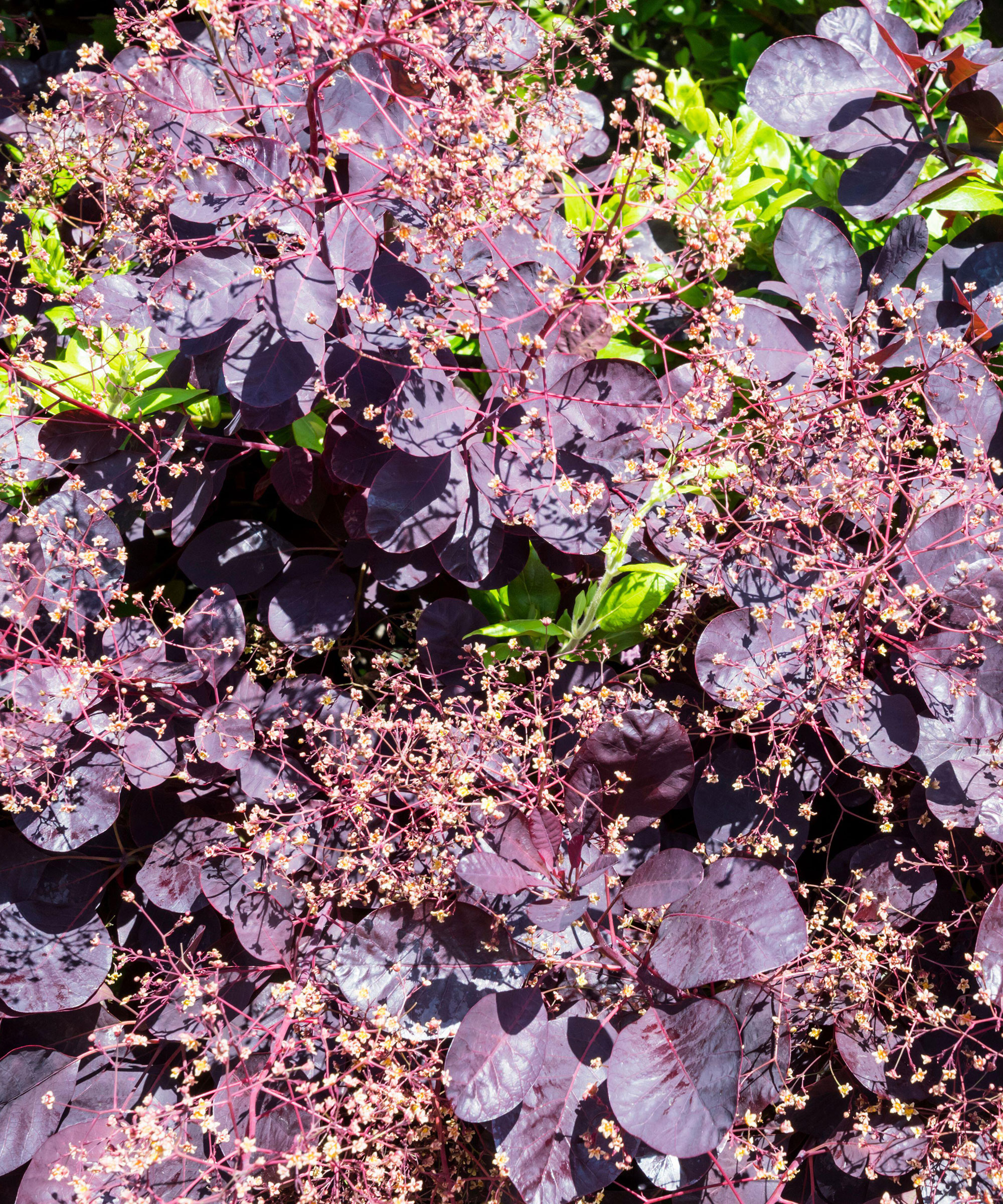
Pruning a smoke bush can help the shrub bloom profusely
Pruning at the correct time is very important in ensuring the continual health of the shrub. Heading out to trim at the wrong time of year is a pruning mistake that can not only risk leaving the smoke bush more susceptible to pests and diseases but it may mean you miss out on its distinctive bloom.
Smoke bushes do not tend to need lots of pruning, but are tolerant of hard pruning if necessary. However, any major trimming should be done during the shrub’s dormant season.
‘Pruning a smoke bush is most effective when done during late winter or early spring, ideally before new growth begins,’ says David Miller, CEO of Austin Tree Services. ‘This dormant period encourages vigorous regrowth during the growing season. Timing is crucial to prevent the loss of flower buds and ensure the plant's resilience during the dormant season.’
Design expertise in your inbox – from inspiring decorating ideas and beautiful celebrity homes to practical gardening advice and shopping round-ups.
The ideal time to trim will depend on your US hardiness zone and the length of your winters, but it tends to be a plant to prune from March onwards in many climates. Wait until the frosts have ended for your climate and avoid pruning during extreme colds.
The only exception to trimming outside of late winter or early spring is to lightly remove any dead, diseased, or damaged branches when they are identified. As these small-scale pruning tasks are beneficial to the tree and are not likely to affect its long-term health, they can be done throughout the year.
How to prune a smoke bush
There are a few different approaches that can be taken when pruning a smoke bush. Light pruning annually can help to shape the shrub, while they can also be pruned hard to rejuvenate and reshape an older shrub. Whatever type of pruning you are doing, always use clean and sharp pruning shears or loppers to make precise cuts and minimize the risk of transmitting diseases around the garden.
How to shape a smoke bush
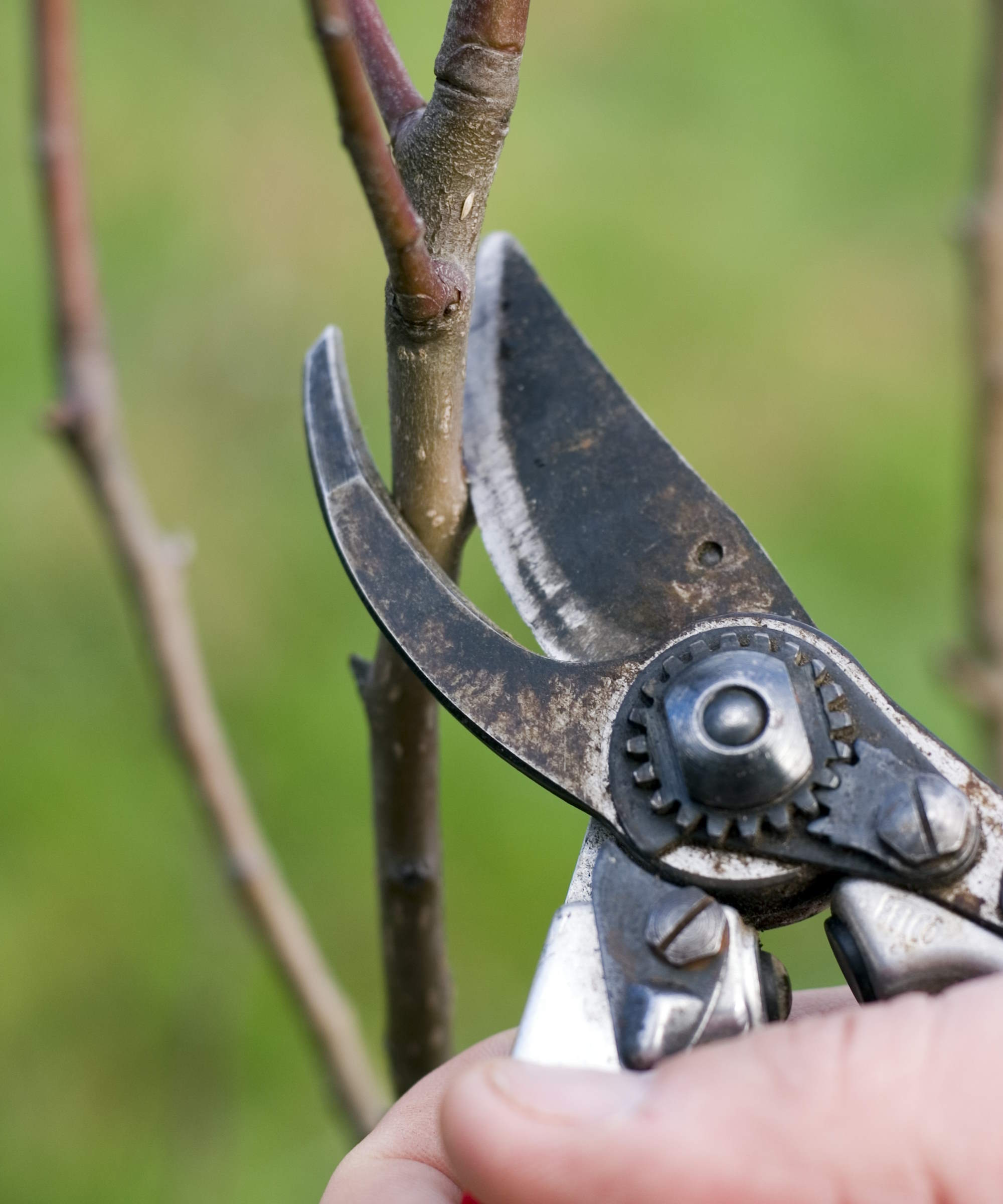
Sharp tools are essential when pruning a smoke bush
The first step is to remove any dead, damaged, or diseased wood, and prune branches back to healthy tissue or completely to the base. The removal of unwanted and crossing branches will also help thin the canopy and improve air circulation and sunlight penetration into the shrub.
Mike Lansing, co-founder of Planters Digest, recommends: ‘You can shape the plant by pruning back any overly long or straggly branches to maintain a compact and attractive form. Be mindful of the plant's natural growth habits and aesthetic appeal when shaping it, aiming for a balanced and visually pleasing silhouette.’
A dense smoke bush will benefit from thinning out up to one-third of the oldest interior branches. The shrub will be stimulated to produce new highly-productive growth.

Mike Lansing is the managing editor and co-founder of Planters Direct and a certified garden designer with a deep-rooted passion for plants. After spending over a decade in the corporate realm, Mike transitioned to pursue his love for gardening, earning a Certificate in Garden Design from George Brown College.
How to hard prune a smoke bush
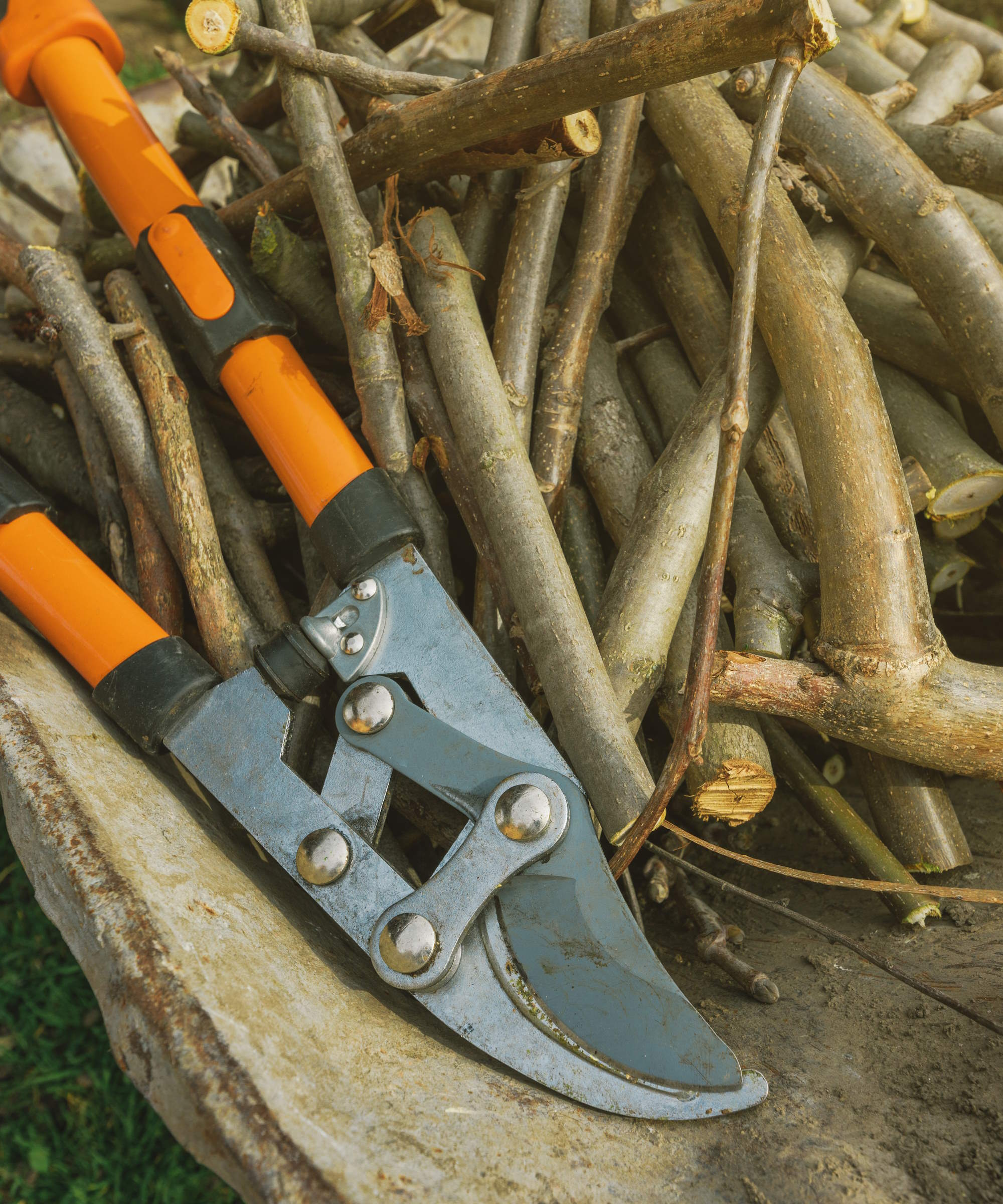
Smoke bushes can tolerate hard pruning
Smoke bushes can be pruned hard, which is beneficial if they have become overgrown or neglected and need some rejuvenation. The stems can be cut back hard, down to within only a few feet of ground level. This level of pruning does sacrifice the current year’s flowering but can give you a healthier and more controlled shrub for the coming years.
It is advised to check whether your specific variety of smoke bush responds well to such hard pruning, before doing any major cutting. As an alternative to hard pruning, Mike Lansing suggests: ‘Consider implementing gradual pruning over several years to achieve the desired shape while minimizing shock to the plant.’
Shop tools for pruning
How to prune a smoke bush into a tree
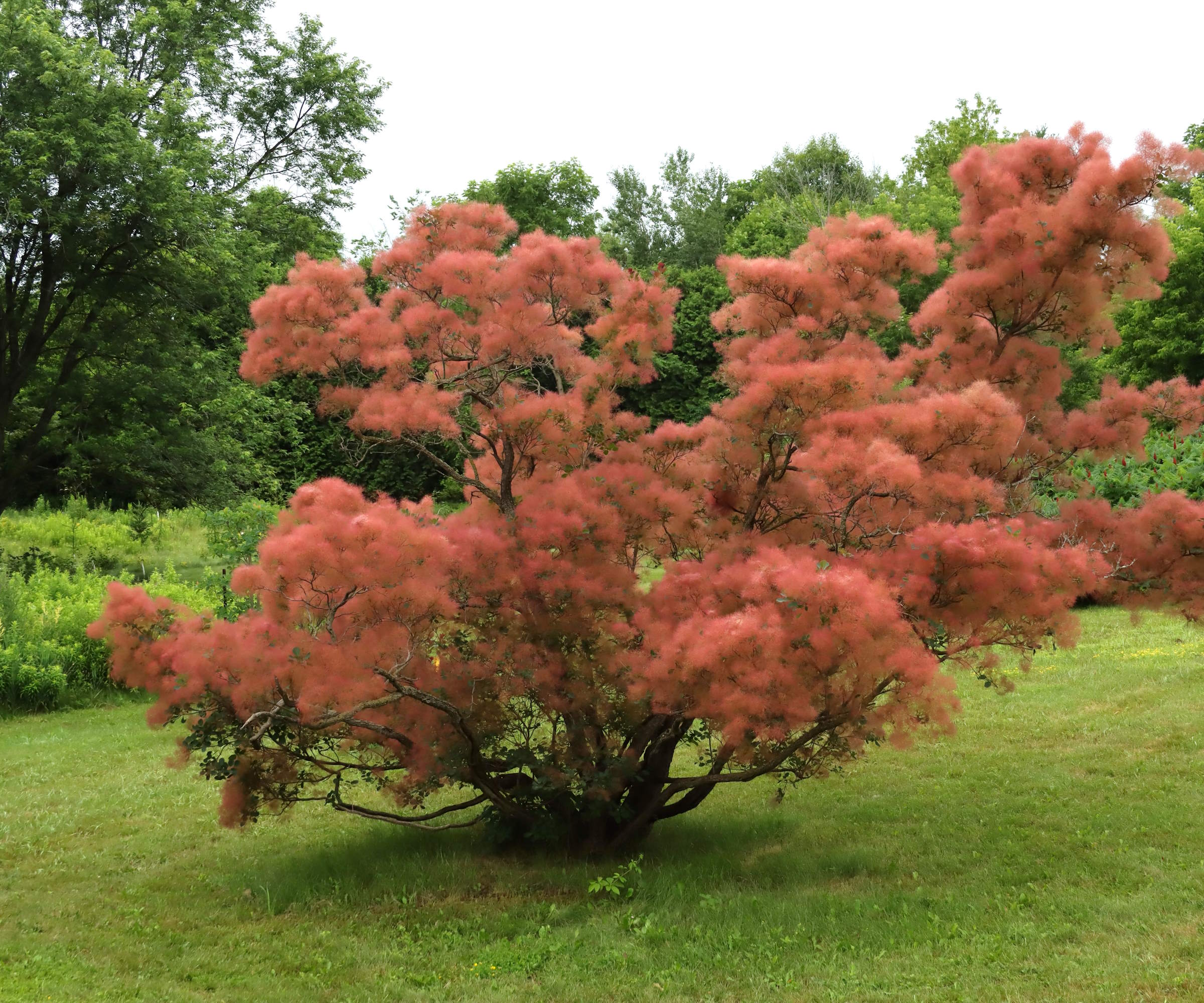
Smoke bushes can be pruned to grow as small trees
Smoke bushes can be trained and pruned to grow as a small tree. This process does take time and be prepared for it to need pruning over several years until you get the desired tree form.
Maureen Wright, plant expert at Fast Growing Trees, explains 6 steps that you should follow, over a series of years, if you desire to develop a smoke bush to grow as a tree.
- Identify a strong, straight stem that will become the central leader of the tree. This should be the main trunk of the future tree
- Carefully prune away any competing or unwanted stems that may interfere with the development of the central leader. This helps focus the plant's energy on the chosen leader
- Gradually remove lower branches along the central stem, leaving only those higher up on the trunk. This creates a clear trunk and raises the canopy
- As the central leader grows, ensure it remains the dominant stem. Remove any side shoots or competing leaders that may try to develop. Encourage a single, strong trunk
- Once the desired height is reached, focus on shaping the canopy. Prune to create a balanced and aesthetically pleasing form. You can maintain a rounded or vase-shaped canopy based on your preference
- Regularly monitor the tree's growth and continue to shape it as needed. Prune away any dead or diseased wood to maintain overall health

Maureen has been a Certified Oklahoma State University Master Gardener since 2012 and is currently working on her ISA Arborist Certification. Her background in social work led her to an interest in horticultural therapy training and she spends a lot of her time working with at-risk youth and adults working on community garden projects. Being born in New York City and living in several places across the country has allowed her to experience a variety of different growing conditions, from desert regions in Arizona to plains regions in Oklahoma.
FAQs
Can you prune a smoke bush in summer?
Pruning in summer should be restricted only to removing any damaged branches as you spot them. Doing any large pruning in summer will stress the smoke bush at a time when it may already be under stress due to the hot weather. There are also risks with open pruning wounds during the summer, as pests, bacteria, and spores that spread disease are more active and may be tempted by fresh cuts.
Can you prune a smoke bush in the fall?
It is inadvisable to prune a smoke bush in the fall. The main potential issue stemming from trimming in fall is that it will stimulate new growth, that will be highly vulnerable to winter frosts. Any damaged young stems during the colder months will leave the shrub increasingly susceptible to pests and diseases.
Whatever level of pruning you give your smoke bush, it is always beneficial to give the plants a good mulching afterwards. A few inches of organic matter, such as compost, well-rotted manure, or leaf mold, helps to suppress weeds, regulate the soil temperature, hold more moisture in the ground, and provide vital nutrients to the shrub as it breaks down.

Drew has worked as a writer since 2008 and was also a professional gardener for many years. As a trained horticulturist, he worked in prestigious historic gardens, including Hanbury Hall and the world-famous Hidcote Manor Garden. He also spent time as a specialist kitchen gardener at Soho Farmhouse and Netherby Hall, where he grew vegetables, fruit, herbs, and cut flowers for restaurants. Drew has written for numerous print and online publications and is an allotment holder and garden blogger. He is shortlisted for the Digital Gardening Writer of the Year at the 2025 Garden Media Guild Awards.
